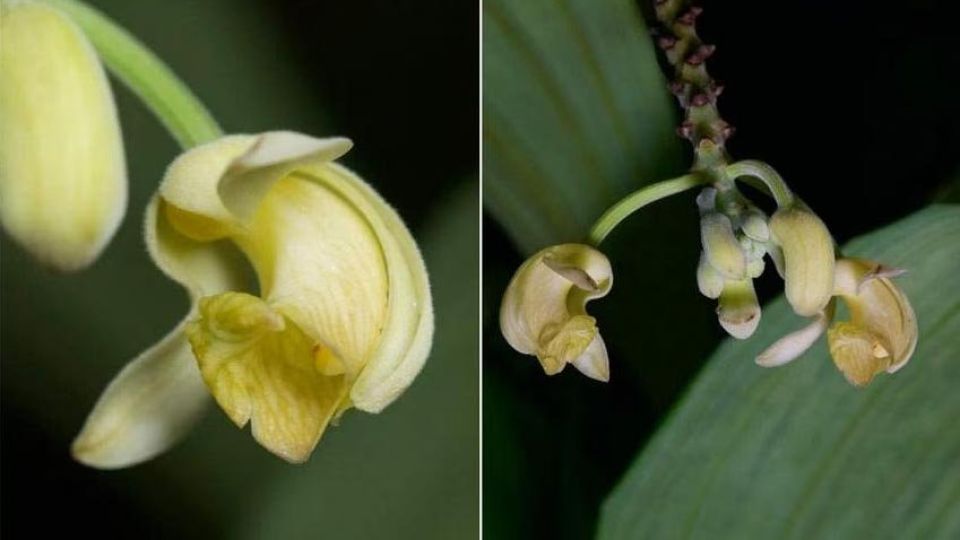June 15, 2023
SINGAPORE – A new orchid species discovered in Singapore has been given a name that means “Merlion” in Greek.
A specimen of the Claderia leontocampus was first collected in the Republic by Singapore Botanic Gardens researchers during a routine survey in 2020, the National Parks Board (NParks) said on Wednesday.
“The plant later flowered in cultivation and bore small, pendulous, cream-yellow flowers, which differed from the upright, bright green flower of the Claderia viridiflora,” NParks added.
Leontocampus is Greek for Merlion.
Before the new orchid species was discovered, the orchid genus Claderia had only two known species – the Claderia viridiflora and Claderia papuana.
The Claderia leontocampus grows locally in old secondary lowland forest, on well-drained soil, and can also be found in Sumatra in Indonesia, and in Peninsular Malaysia, said NParks.
The new species had been recorded only twice – in 2020 and 2022 – in an eight-year period of recording the Claderia population, as compared with Claderia viridiflora, which has been recorded seven times.
“Its population size is unknown as the species is likely to be under-recorded due to its near-identical appearance to (the) Claderia viridiflora when sterile,” said the agency.
Before this, the last discovery of a new orchid species was of the Nervilia singaporensis by the Singapore Botanic Gardens’ researchers in 2019, at Bukit Timah Nature Reserve, NParks added.
The orchid genus Nervilia was previously thought to be extinct in Singapore.
In a Facebook post on Tuesday, National Development Minister Desmond Lee said it is heartening to see that new discoveries continue to be made in Singapore, even for widely studied plant groups such as orchids.
“Such efforts continue the tradition of the Gardens’ researchers leading the study of our native plant species, and affirm the importance of our conservation strategies in safeguarding the rich biodiversity of our city in nature,” said Mr Lee.

